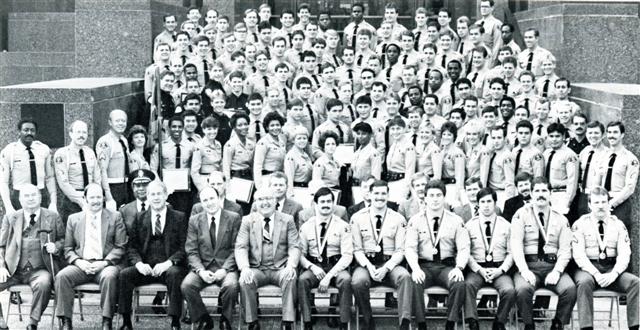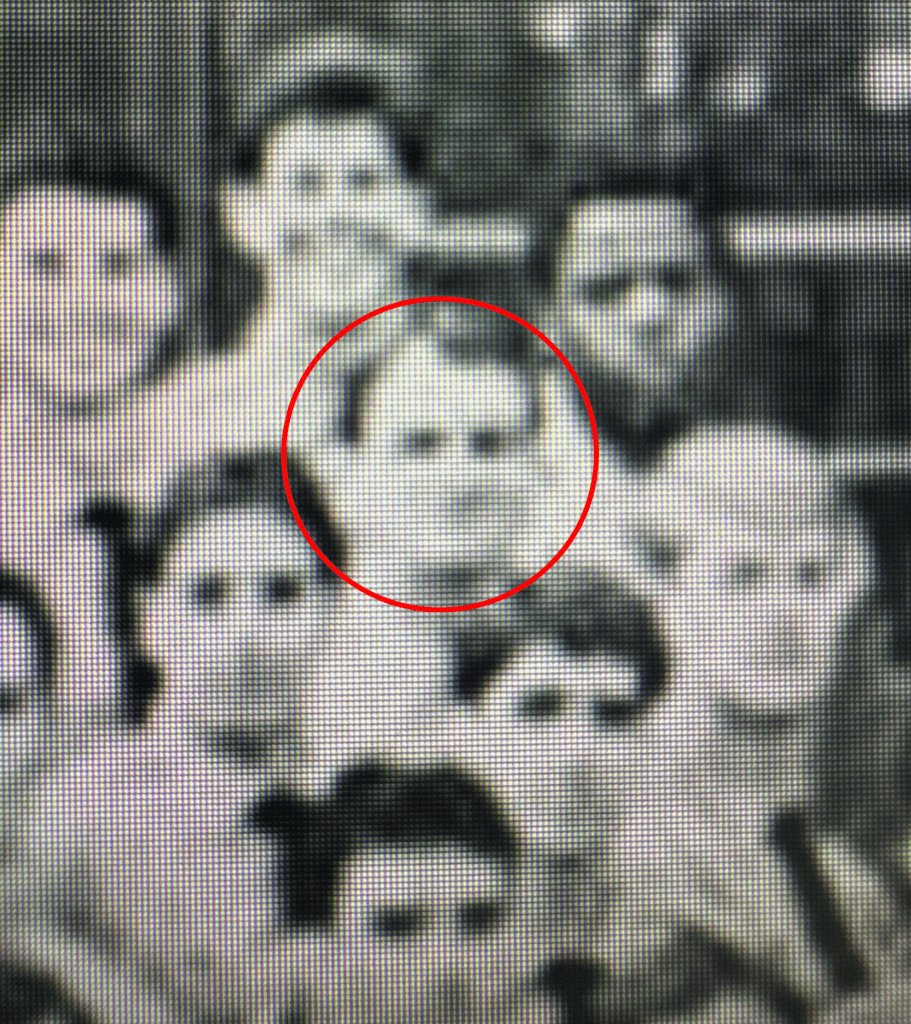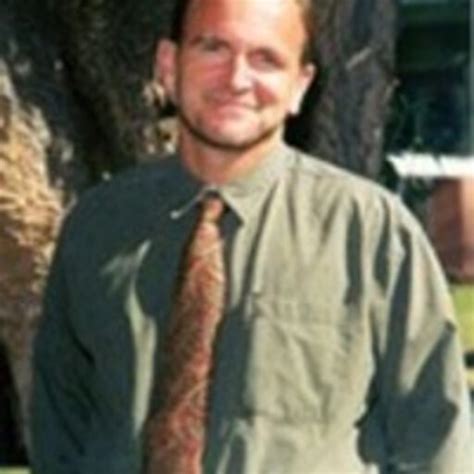The following article “THE POSER” is number TWO in a series of real-life experiences taken from the manuscript of retired Deputy Dale Hedges, titled, “Damage Control,” which documents his time with the Los Angeles County Sheriff’s Department.
In this article, Dale expertly leads us through the interview and subsequent follow up investigation of former deputy sheriff August Hoffman, who relates a tale that is simply too bizarre to be true…. Or is it? What follows is an incredible tale of malfeasance, corruption, sexual depravity, immorality, and so much more. Make sure you’re sitting down when you read this!
THE POSER
Within days of the interview of Bolton, I moved on to pursue the reported lost or stolen badge which was a huge portion of the controversy surrounding Bolton. I contacted the Sheriff’s Personnel Bureau and requested information about the badge recovered from Bolton at the Rose Parade. The badge had been reported stolen by an ex-deputy, Deputy August Hoffman, several years earlier. He was no longer a member of the Sheriff’s Department and it appeared he had simply resigned sometime around 1986. After a bit of research, I managed to find a phone number for August Hoffman. I called the number and Hoffman answered the phone.


Without telling him much about the investigation, I told Hoffman the badge he had reported stolen years before had been recovered and asked if he would be willing to meet with me and my partner, Sylvia Smith, at the Crescenta Valley Sheriff’s Station the following morning to talk to us. Hoffman seemed surprised and asked where I had recovered it and who had it as it had been so many years since he had reported it missing. I told him I was still investigating the suspect and could give him more information when we talked. Hoffman agreed and an appointment was set up for the following afternoon.
The following morning Deputy Smith and I met August Hoffman in the lobby of the Crescenta Valley Sheriff’s Station where we introduced ourselves and took him to a secure interview room. All the information we really had at that moment was the story we had heard from Bolton, about how he had acquired the badge. It was August Hoffman who had reported the badge stolen years before, so we were interested in hearing his version of the story. It could be that it was simply, things happen, deputies lose their badges or lay them down and have them stolen or forget them, or at times they file false police reports and decide to keep badges and ID as keepsakes, so to get to the truth we had to tread slowly.

Other than the fact that Bolton ended up getting caught with the badge, August Hoffman had reported it stolen, we had no real evidence to arrest August or suspect him of any wrongdoing. We did have, however, a very good suspicion where this might go after the interview with Bolton, so we sat Hoffman down and, in my best, “it’s no big deal voice,” told Hoffman this was simply a formality, as I advised him of his Miranda Rights prior to the interview. I fully expected Hoffman would invoke his rights and end the interview. I thought this interview was going to be simple and quick even if he spoke with us as really the scope at that point was the badge and any statute of limitations likely had expired for prosecution.
After he heard his rights, Hoffman seemed oddly calm and joked about receiving his Miranda Rights after being a deputy sheriff himself. He appeared comfortable with us and commented on how he still felt like he was one of us. He waived his rights and said he would be willing to talk to us. As we began the interview it was just small talk, August was very comfortable and talked as if we were old friends. He seemed vaguely familiar and as he spoke, I wondered if we had ever crossed paths, or if I had met him before. I put that aside and continued the interview.
When asked about his time in the Sheriff’s Department, Hoffman said he was hired in 1982, and after completing his Academy training was assigned to the Men’s Central Jail in downtown Los Angeles. He had decided to resign in 1986 from the Inmate Reception Center. When we asked him about the report of his badge and identification being stolen, he responded that he had at one point in around 1984 left the Los Angeles County Sheriff’s Department as a deputy sheriff and had been hired as a psychologist to work at the Department’s Psychological Services Bureau. His first version of the story was that prior to transferring to this new job he had lost his badge and identification and reported it to the Department. Sylvia asked him if that was all there was to the lost badge and Hoffman simply said, “yes, nothing more.” He said he was surprised to hear about it being recovered after all this time.
We asked Hoffman if he had worked at a county home for children after leaving the Sheriff’s Department and if he recalled a counselor named Leymoine Bolton. He looked a bit uncomfortable and acknowledged he thought the name Bolton was familiar and he may have met him while working in a county home for abused children. I again asked about Bolton hoping to get a time frame, and he thought for a moment and said yes, he remembered Bolton. I asked him if he had heard about Bolton being arrested for impersonating a sheriff’s deputy at the Rose Parade. August said he had not heard about it. At this point we started filling in the gaps, telling Hoffman “some” of the information we already had, and advised him that the badge he had reported stolen was in the possession of Bolton. We were trying to illicit more truth from Hoffman.
We advised Hoffman that Bolton had been arrested at the Rose Parade a few days earlier. He had been caught wearing the badge he told us he had stolen from Hoffman. So, we were aware that Hoffman had somehow retained possession of the badge which had been reported stolen several years earlier. Hoffman looked away from us and shook his head back and forth slowly as I continued.
I told August that we had interviewed Bolton and described to him how Bolton said he had acquired the badge, stealing the badge directly from Hoffman while working at the county children’s residence. We told Hoffman how Bolton had described the uniforms he had hanging in his car’s rear window, and how he had convinced people he was still a Sheriff’s employee, and about his being a reserve and/or retired deputy. We told Hoffman how Bolton told us he had stolen the badge from him. I wanted Hoffman to hear all the information we had, hoping that it would convince him to simply admit what he had done. We ended by asking Hoffman if he wanted to add any more information than we already had, or if he wanted to tell us the real story about the badge and identification.
August looked a bit nervous and thoughtful for a minute. Hoffman, as we spoke and questioned him, at some point seemed somewhat resigned to what was happening and where it was all headed. As we continued to probe and question him to get to the truth about how he managed to have the badge he reported stolen, he finally stopped changing and manipulating his story. He said he would be honest with us, asking us if he was going to be arrested. We simply told him we had not and could not make that determination until all the facts were told to us. All we wanted to know was the truth at this point. He now had the option to stop the interview by invoking his rights, but to our surprise he decided he would continue the interview saying, “I want to get this all out in the open and get it over with.”
As Hoffman began talking, never in a million years could have guessed what he was about to disclose. The events of Hoffman’s time with the County of Los Angeles were going to be exposed and we were not prepared for what he was going to tell us. We could never had imagined what this man, August Hoffman, was going to admit to, or how this story was going to change lives and destroy careers.
Hoffman began by telling us he had come onto the Department in 1982 when he attended the Sheriff’s Academy. He worked at the Men’s Central Jail as his first assignment from where he resigned from being a deputy sheriff to take a position at Psychological Services Bureau. He knew he would have to turn in his badge and ID when he resigned from being a deputy and he had decided to report them stolen, keeping them as a keepsake or souvenir. He said he was issued a new badge with ID card which he later turned in to personnel. He said the Sheriff’s credentials we had recovered were those he had reported stolen. The badge and credentials were later either lost or stolen from him a few years later while working at the county home for abused children where he worked as a resident psychologist. He couldn’t report them stolen again, so he just figured he would never see them again. He hadn’t thought about them again until I had contacted him.
Hoffman didn’t have to be asked many questions at this point and seemed to want to clear the air and get his story out. Hoffman said it was always his life’s dream to become a psychologist but had taken a different path and became a deputy sheriff. Once out of the academy he was assigned to Men’s Central Jail where he felt compelled to lie to his fellow deputies about his background. He wanted to look good to his peers and began telling other deputies and supervisors he had a degree in Psychology. When they asked why he wasn’t working as a Doctor of Psychology rather than a deputy sheriff, his explanation was he wanted to work with law enforcement as a specialty, and thought being on the front line and getting the experience as a deputy would give him the edge he needed, helping him understand more about what law enforcement officers deal with.
According to Hoffman, he was convincing to everyone around him, although he did not hold any degrees in psychology. He was so convincing in fact that some of his peers began going to him during his on-duty work hours for their personal issues. His supervisors, sergeants and lieutenants encouraged and even pushed him to help and counsel his peers during his duty time, giving him free time to counsel his fellow deputies.
Around 1984 the head of the Los Angeles Sheriff’s Department, Psychological Services Bureau, a man named, Dr. Stratton left his position. He was replaced by another Psychologist named Dr. Audrey Honig. Her filling of this position left an open vacancy for a Dr. of Psychology within the Department. A Countywide teletype was sent out announcing this opening, which was received by August Hoffman’s supervisors, who had been encouraging Hoffman in his quest to help deputies in need. Several of Hoffman’s supervisors at the jail brought him into their office. They showed him the teletype for the open position for a psychologist with Psychological Services, telling him he needed to apply for the position right away.
Knowing he couldn’t get away with this much longer he declined and stated he was happy as a deputy. He knew that with no training or college credentials he didn’t qualify for the position as a psychologist, he tried to convince them he didn’t want to take the job at that time and wanted to continue as a deputy sheriff. Unconvinced, his sergeants sat him down and told him to fill out the application.
Hoffman felt the pressure and sat down in the sergeant’s office, filling out his application for psychologist at the Sheriff’s Psychological Services. Believing he would never get hired, he filled in a fake list of credentials, colleges, and degrees with the names of several large colleges, mainly on the East Coast. To his shock and surprise, with the help and support of his supervisors, he received an interview with the new Department Head, Doctor Audrey Honig. After the interview, Dr. Honig hired Hoffman as a card-carrying Doctor of psychology for the Sheriff’s Department. To Hoffman’s utter disbelief, he now held a coveted, high paying position as an actual psychologist. He was an actual Doctor of Psychology. He would be treating deputies suffering from on-the-job trauma, some of them very severe trauma and injuries, their family members, and their off-duty and personal family issues. Doctor Honig had given Hoffman, according to him, two years to produce all his required college credentials and diplomas, handed him his business cards, and gave him an office where he went to work right away treating traumatized and hurting deputy sheriffs and their families.

As August spoke, I sat in front of him studying his face and demeanor. I still thought I recognized him from somewhere, but I just couldn’t find the place where I had seen or met him before. Maybe when he was a deputy? Maybe he rode at Firestone as an academy recruit? I couldn’t place him. Hoffman seemed comfortable at this point and began talking more openly and without questions from us during this interview. He seemed almost to be bragging about his exploits and he didn’t seem to be withholding anything back, so we sat back and let him talk freely.
As he continued his story, he started rattling off the names of six deputies, deputies he clearly assumed we might have known in the Department. Several of those names I recognized as folks I had worked with or known in the past. Then he looked at me and asked me directly, “Did you know Brian Wines?” That specific name stood out like a sore thumb and hearing it kind of shocked me. Why was he asking me about Brian and how did he know Brian? Brian Wines and I had known one another during our high school years. We had gone to school together and although I had lost track of most of my friends while in the military, Brian and I, along with several other of our high school classmates had met again after 1978 as deputy sheriffs. Brian had unfortunately committed suicide a few years earlier. I interrupted Hoffman, and asked out of curiosity; “how did you know Brian Wines?” He said he was the treating psychologist, treating Brian at the time he committed suicide.
Suddenly, a jolt of electricity shot through me, I remembered where I had met Hoffman before. I had been involved in a third officer involved shooting during my career in 1985. At that time the rules had changed. When deputies were involved in shooting incidents they were removed from the field and were sent to the Sheriff’s Psychological Services. They were required to be evaluated and cleared before being sent back to the field or placed back on regular duty.
I looked at Hoffman and realized it was him, then Doctor August Hoffman whose office I had been referred to and I had sat in front of to be interviewed, evaluated, and cleared to return to work. He was then Doctor August Hoffman, sitting across his desk as the psychologist at Psychological Services who interviewed me and cleared me to return to work. He seemed I recalled then, so uninterested in talking to me, that the interview had always stuck with me all these years. His only questions were, “do you feel ok?” and “are you ok to go back to work?” I answered “yes” twice, left his office and went to work.
Hoffman continued his story, telling us that he, as a Department psychologist, had treated these six particular deputies, who, while under his care, had all committed suicide while struggling with various psychological issues. He went on in some detail to remind me of the way three of them had died at their own hands, one putting a shotgun in his mouth while at home. One deputy shooting himself in the head at Lynwood Station in the station locker room, and of course Brian Wines. Distraught, after his shift, one deputy had walked into the station locker room, filled with his friends and fellow deputies. As his friends, and partners were getting dressed, he placed his revolver in his mouth, shooting himself. And of course, the third deputy, Deputy Brian Wines, who he said had shot himself in the head.
Generally, when a deputy commits suicide no one talks about the backstory. Only those who were closest to him or her might know the story, but out of respect the details are normally never discussed or given out. I never knew or asked about the backstory or the why regarding Brian Wines’ suicide, but I was about to find out. Hoffman offered up an entirely bizarre story about Brian Wines and his time as a psychologist with the Sheriff’s Department.
I sat there for a moment in silence, absorbing what Hoffman had just said. Piecing together the story I had heard so far. Sitting in front of me was an ex-deputy. He had lied and received a county job as a psychologist, where he was able to treat literally an unknown number, possibly hundreds and hundreds of deputy sheriffs and their family members in his two years at the Psychological Services Bureau. A man who lied and admittedly had no degrees or training to do the job but admitting to having had at least six suicides of deputy sheriffs under his watch. All these deputies had one thing in common. They had all committed suicide while under August Hoffman’s care. At this moment I was shocked. How was this man not in Prison?
Hearing this admission coming from Hoffman, in such a cold, openly arrogant and unconcerned manner. An ex-deputy whose attitude and demeanor seemed to clearly suggest he was in no fear of any repercussions or blowback was incredible, mind boggling. I wanted to know more but my first and most immediate impulse at that moment was to jump over the interview table and get some immediate vengeance for Brian Wines. I was completely taken off guard by this interview and never expected the conversation to go where it ended up. My partner Sylvia Smith could feel the tension and asked if I would step out for a moment to talk, so we went into the hallway.
Outside in the hallway I was livid. Here we had an individual who was admittedly responsible for at least six cases of criminal negligence leading to suicides, potentially murder, and somehow the Department had allowed him to walk away a free man and bury his crimes. If his story was true it was shocking. As we spoke quietly in the hallway, the Station Watch Commander, Lieutenant Gable, walked down the hallway. He stopped and looked through the window of the interview room then angrily walked towards us. He was trying to control his own emotions when he asked us if it was August Hoffman in the interview room. I told him yes. I advised him we were investigating the use of his stolen badge during the Rose Parade. Lieutenant Gable came back with, “throw the book at that asshole, lock him away.” I asked what he knew about Hoffman, and although he was clearly shaken and upset, the lieutenant related a horror story of what he and his family had gone through with August Hoffman and Psychological Services.
Lieutenant Gable began by telling us that he was married to his high school sweetheart. They had been married for close to 25 years at the time it all occurred. In 1983 his then 16 yr. old son had been arrested for an alcohol-related offense. Believing his son had some alcohol related as well as personal issues, he and his wife had contacted Psychological Services for assistance. They were referred to then Doctor August Hoffman for family counseling and treatment as a family unit at the Sheriff’s Psychological Services. The family at first felt comfortable with the consultation and treatment Hoffman gave them. It was after a short period of time, Hoffman had suggested that he and his wife continue with their consultations, but separately, at individual times. This was odd, uncomfortable and confusing, but they agreed, as they wanted to do the right thing for the family.
After a series of single visits with Doctor Hoffman, Lieutenant Gable noticed he and his wife were experiencing more and more problems at home. Doctor Hoffman, acting as their intermediary, finally dropped the news on him during one session that his wife was not happy and wanted to separate from him. Hoffman had convinced them to separate, he had convinced them both during their separate visits that they needed this separation. Ultimately, Hoffman convinced them that separation would be best, so they separated.
During this time, while they were both vulnerable and confused about the splitting up of their family, Doctor Hoffman, who later admitted to us he had been grooming her, had unexpectedly showed up at the home of Lieutenant Gable’s now lonely, estranged wife. Hoffman claimed to be there as her doctor and out of concern for her wellbeing. She allowed him into her home where he took advantage of her emotional state, manipulated her, and had intimate consensual sex with her (his patient.) Lieutenant Gable said his wife told him, that after having sex, as Doctor Hoffman left their home, as he walked out the door, Hoffman turned to Mrs. Gable and asked her, “How does it feel to have sex with a psychologist?”
It was approximately six weeks later Mrs. Gable discovered she had been impregnated by Doctor Hoffman. When she contacted him and told him of the pregnancy, he responded by sending her his personal check to pay for an abortion, a check which was still uncashed and which Lieutenant Gable had in his possession, showed me and gave me a photocopy of for the case files.
After this conversation I calmed down and made a resolution to try and prosecute this fraud. I made it my goal to try and get justice for every one of his victims. I wondered to Sylvia Smith, how many deputies and family members of deputies could Hoffman see in a single day multiplied by five days a week, over a two-year period? How many other deputies had or may have had their careers adversely affected or harmed themselves by advice from a Department psychologist who wasn’t even trained or licensed to give advice? How many deputies may have been wrongly fired or forced out of the Department for not getting the correct help, or how many could have had their job performances affected and had their careers ruined or altered negatively? How many other family members were damaged by what appeared to be a coverup of a large magnitude? This was a lot to process.
Reentering the interview room, we sat back down to an unconcerned August Hoffman. I began the interview again while Sylvia Smith took the notes. I recapped what Hoffman had already told us earlier and he agreed. Hoffman then stated he had seen and recognized Lieutenant Gable looking through the glass, he asked what he had told us in the hallway. I told him the story the lieutenant had given us and not wanting to appear biased, I offered to listen to his version of the events. August Hoffman began, again seemingly without remorse or maybe because he had remorse, but he began telling us his version of events. Hoffman agreed that basically everything the Lieutenant had said was true. He added that during his scheduled time with the Gable family he had noticed how attractive Mrs. Gable was. He said he began to get some strong sexual feelings towards Mrs. Gable which got stronger over time. He began a process of manipulating them to separate their visits with him where he began to groom her causing her slowly to separate with Lieutenant Gable. He eventually convinced them to split up.
Hoffman again seemed comfortable as he related the story. He said he knew she was vulnerable and alone, so he made a surprise visit to her home. He told her he was in the area and was concerned about her welfare, He wanted to check up on her. After spending some time alone in her home talking, while she was crying and vulnerable, he made his move and had ended up having sex with her. August said he was surprised it had happened so easily. Later he got a little panicked and concerned when she called him later to tell him she was pregnant with his child. Hoping not to start any trouble or bring attention to himself, he quickly took responsibility and sent her a personal check for an abortion. It was after that, Lieutenant Gable and she decided to stop seeing Hoffman professionally and had gotten back together. Hoffman was very aware that Lieutenant Gable was not letting the situation go away and had been trouble for him for several years.
In part three of the story, titled, “JUSTICE DELAYED,” the continuing inquiry into the actions of disgraced former LA County deputy/psychologist August Hoffman heats up as the investigators continue to follow leads. What they uncover along the way is a web of deceit and corruption at a level that is simply unbelievable.


Follow Us